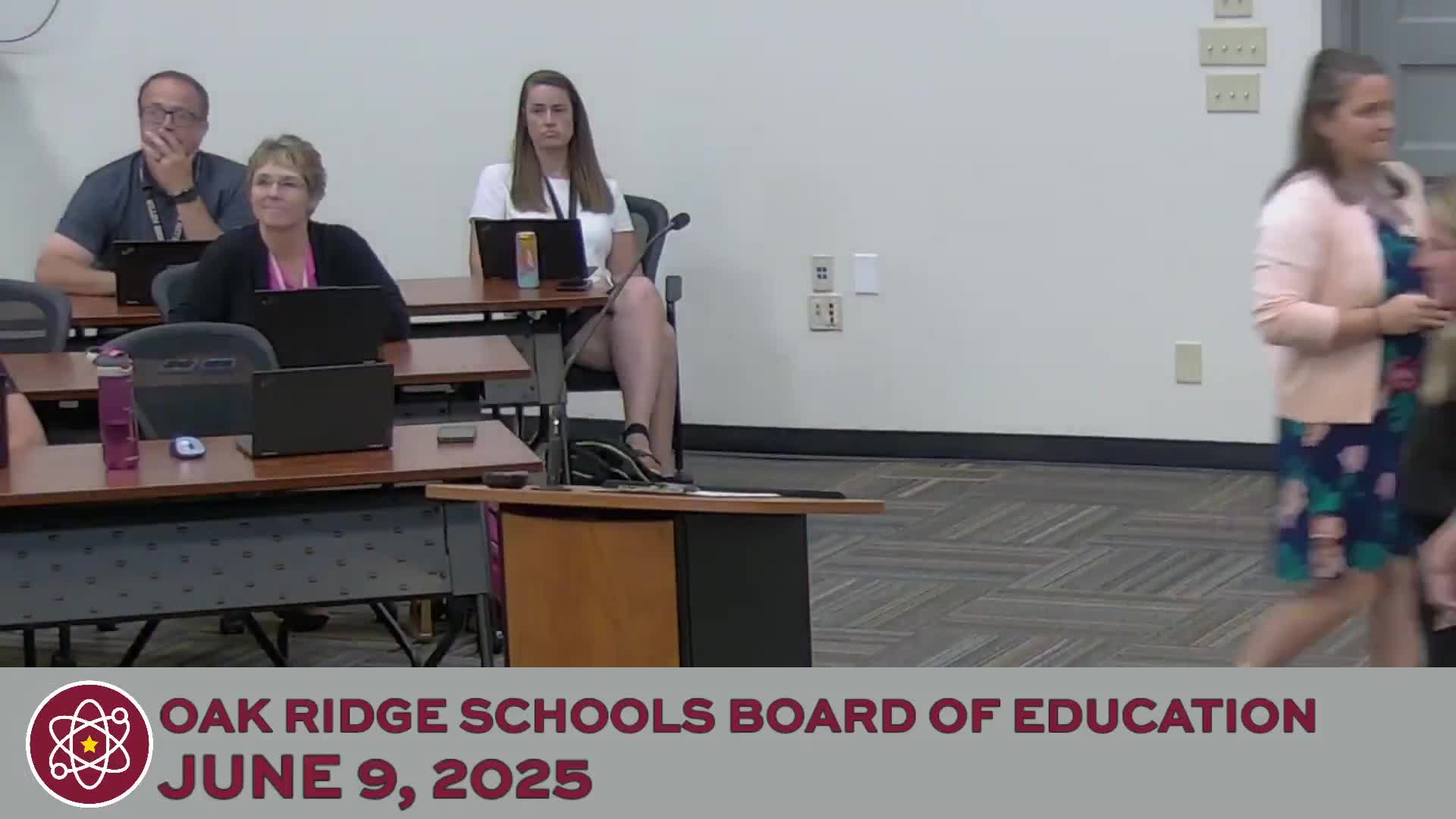Oak Ridge Schools to pilot school telehealth visits with East Tennessee Children’s
Get AI-powered insights, summaries, and transcripts
Subscribe
Summary
Oak Ridge Board of Education heard a presentation on a school telehealth partnership with East Tennessee Children’s Hospital that would let nurses connect students to pediatric nurse practitioners for same‑day evaluation, testing and treatment; presenters described consent procedures, services offered and average visit times.
Oak Ridge Board of Education members heard a presentation June 9 on a proposed school telehealth partnership between Oak Ridge Schools and East Tennessee Children’s Hospital that district nursing staff hope to implement next school year.
Madison Branham, the district nursing coordinator, introduced Heather Crouch, a virtual telehealth manager at East Tennessee Children’s, who described how the service works and what conditions it would address.
Crouch said the program is already active in eight East Tennessee school districts and will expand to 13 next year. She said the telehealth visits are intended to improve access to pediatric care, reduce missed school and work days, and lower preventable emergency room visits. “With the program last year, approximately 55 percent of our kids did go back to class that were seen through the program,” Crouch said.
The telehealth platform uses an iPad and a case with diagnostic attachments (stethoscope, otoscope, pulse oximeter and blood pressure cuff). A pediatric nurse practitioner conducts the virtual visit; the on‑site school nurse assists and provides baseline vitals and context. Crouch said the program can perform point‑of‑care COVID, flu and strep tests and prescribe treatment when indicated. Typical visit metrics she cited were an average wait time of about five minutes and an average clinician visit time of about 10 minutes.
Crouch said the program covers common, nonemergency complaints such as fever, sore throat, earaches, pink eye, rashes, cough, tooth pain and lice; for dental issues they can start antibiotics until a child obtains dental care. She described built‑in features to add parents or interpreters to a visit and said visits generally are not completed without spoken parental consent. “We will not do a visit unless the nurse says I’ve talked to mom and she said yes,” she said, noting that in four years of the program they had done fewer than five visits without a parent contact, and only after escalation through school administration when staff could not reach the parent.
Branham said the district nurse team and hospital staff plan to send enrollment packets to parents at the start of the year and offer both paper and electronic consent options. Crouch said uninsured students will be seen; the program uses sliding‑scale fees and staff can assist families with TennCare enrollment and appeals if needed.
Board members asked about parental consent and billing; Crouch said billing information is collected when available and the program’s billing team helps locate insurance details when necessary. She and Branham said the telehealth option is intended to supplement, not replace, a child’s primary care provider.
The presentation concluded with a short demonstration of the telehealth device and a brief exchange with the nurse practitioner who would staff visits.
